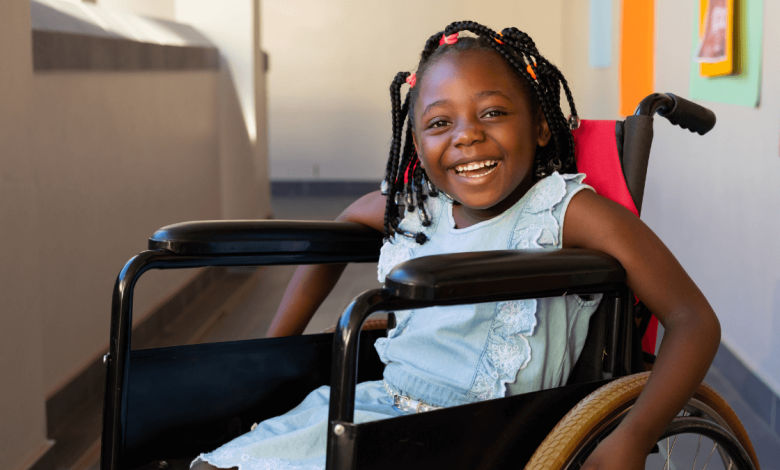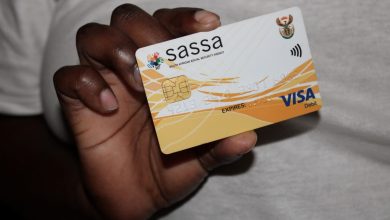How Medical Assessments Work for the Care Dependency Grant in South Africa

The Care Dependency Grant (CDG) is a crucial financial support mechanism for caregivers of children with severe disabilities in South Africa. This grant alleviates the financial burden on families who care for children needing constant care. To qualify for the CDG, caregivers must undergo a comprehensive medical assessment.
In this article, we explore the role of medical assessments in the CDG, eligibility criteria, the application process, and real-life insights into navigating the system.
What is the Care Dependency Grant (CDG)?
The Care Dependency Grant is a government-sponsored social grant designed to support families caring for children with permanent, severe disabilities. Available to children under 18, it helps those who need full-time care beyond the usual expectations for children of their age.
SASSA, the South African Social Security Agency, administers the grant. To qualify, the child must undergo a medical assessment by a government-appointed medical officer to verify the level of care required. Additionally, the caregiver must meet specific income criteria, except for foster parents, who are exempt.
Key Points about the Care Dependency Grant:
- Available to children under 18 with a permanent, severe disability.
- The child must not be permanently cared for in a state institution.
- Full-time care and support are required.
- The caregiver must meet income means tests (unless they are foster parents).
- A medical assessment report is mandatory for the application.
- The grant amount is adjusted annually and offers ongoing financial support.
Understanding the Medical Assessment Process for the CDG
The medical assessment is essential in determining whether a child’s disability requires full-time care and if they qualify for the grant. This section outlines the medical assessment process in detail.
The Role of the State Medical Officer
In South Africa, a state medical officer or a doctor contracted by SASSA conducts the medical assessment for the CDG. The officer assesses whether the child’s disability is permanent and severe enough to warrant full-time care.
The medical officer will conduct a thorough examination, often requesting detailed medical records and reports regarding the child’s condition. This evaluation includes assessing the child’s developmental needs, physical or mental disabilities, and the level of care required.
What the Medical Assessment Exam Includes:
- Clinical Examination: A physical or psychological evaluation of the child’s condition.
- Review of Medical History: A detailed look at the child’s health history and ongoing medical needs.
- Assessment of Disability: The degree to which the child’s disability affects their ability to function independently.
- Care Requirements: Determining whether the child needs round-the-clock care, including feeding, dressing, and medical management.
Once the medical officer completes the evaluation, they issue a medical report confirming whether the child’s condition meets the criteria for the Care Dependency Grant. This report is vital to the application process and must be submitted to SASSA.
How to Apply for the CDG
The application process for the Care Dependency Grant involves several essential steps. Here’s what you need to do:
1. Eligibility Requirements
Before applying, ensure you meet these eligibility criteria:
- The child must have a permanent, severe disability.
- The child must not be in a state institution.
- The caregiver must meet income means tests unless they are foster parents.
- A medical assessment is required to confirm eligibility.
2. Gather Required Documentation
Along with the medical assessment report, submit the following documents:
- The child’s birth certificate or identity document.
- The caregiver’s identity document.
- Proof of income for the caregiver (unless the caregiver is a foster parent).
- Proof of residence (if required).
3. Submit the Application to SASSA
Once you have gathered the required documents, submit the application to your nearest SASSA office. The medical assessment report must be submitted along with the supporting documents. Applications can be made online, at a SASSA office, or through other available channels.
4. Wait for Approval
After submitting the application, SASSA will process it and verify that all requirements have been met. If everything is in order, the Care Dependency Grant will be approved. You will then begin receiving payments to cover the costs of full-time care for your child.
The Costs and Benefits of the CDG
The Care Dependency Grant provides crucial financial support, though it does not cover all the expenses of full-time care. The grant amount fluctuates each year, depending on the government’s budget. In recent years, the monthly amount has ranged between R2,190 and R2,310.
While invaluable, the grant does not fully cover medical care, therapies, special schooling, or other disability-related expenses. However, it significantly reduces the financial burden on families, enabling them to provide better care for their children.
What Happens After the Medical Assessment?
After the medical assessment is completed, SASSA will review the report and decide if the child qualifies for the Care Dependency Grant. If the assessment confirms the need for full-time care, the application will proceed. If the application is rejected, the caregiver will be informed and may appeal the decision through SASSA’s appeal process.
Caregivers can also submit new medical information or evidence if available.
Who Can Apply for the Care Dependency Grant?
To apply for the Care Dependency Grant, the eligibility criteria include both the child’s condition and the caregiver’s financial situation.
Child’s Eligibility:
- Must be under the age of 18.
- Must have a permanent, severe disability.
- Must need full-time care and support.
- Must not be permanently cared for in a state institution.
Caregiver’s Eligibility:
- The caregiver must meet income means tests, except in the case of foster parents.
- The caregiver can be a biological parent, legal guardian, or another family member providing full-time care to the child.
Real-Life Experiences: The Importance of the Care Dependency Grant
“I’ve been caring for my son, who has cerebral palsy, for several years,” says Maria, a mother of two from Gauteng. “The CDG has been a lifesaver. It’s helped me afford the medical supplies and therapies my son needs. Without this grant, I would struggle to make ends meet.”
Maria’s experience highlights the importance of the Care Dependency Grant not just as financial aid, but as a lifeline for families managing the complexities of raising a child with severe disabilities. Caregivers need to understand the medical assessment process and the required documentation to access this vital support.
FAQs: Care Dependency Grant
Q: How long does the medical assessment process take?
The assessment typically takes one or two visits to complete. However, the approval process may take several weeks.
Q: What if my application is rejected?
If your application is rejected, you can appeal within 90 days. SASSA will review the case, and you may submit additional medical evidence if necessary.
Q: Can the CDG cover costs other than medical expenses?
Yes, the grant primarily covers medical costs but can also help with special schooling, therapy, and daily living expenses.
Conclusion: Supporting Families with Children with Disabilities
The Care Dependency Grant is an essential financial support for families with children requiring full-time care due to severe disabilities. The medical assessment ensures that only those who truly need assistance receive it. As a caregiver, it’s vital to meet the eligibility requirements, gather the necessary documents, and submit the application to SASSA promptly.
If you are a caregiver for a child with a disability, ensure you understand the application process and provide all required documentation. If you need assistance navigating the system or have any questions, feel free to share your experiences or ask for support in the comments below.
Check also: Your SASSA Rights: What to Do If You’re Treated Unfairly




